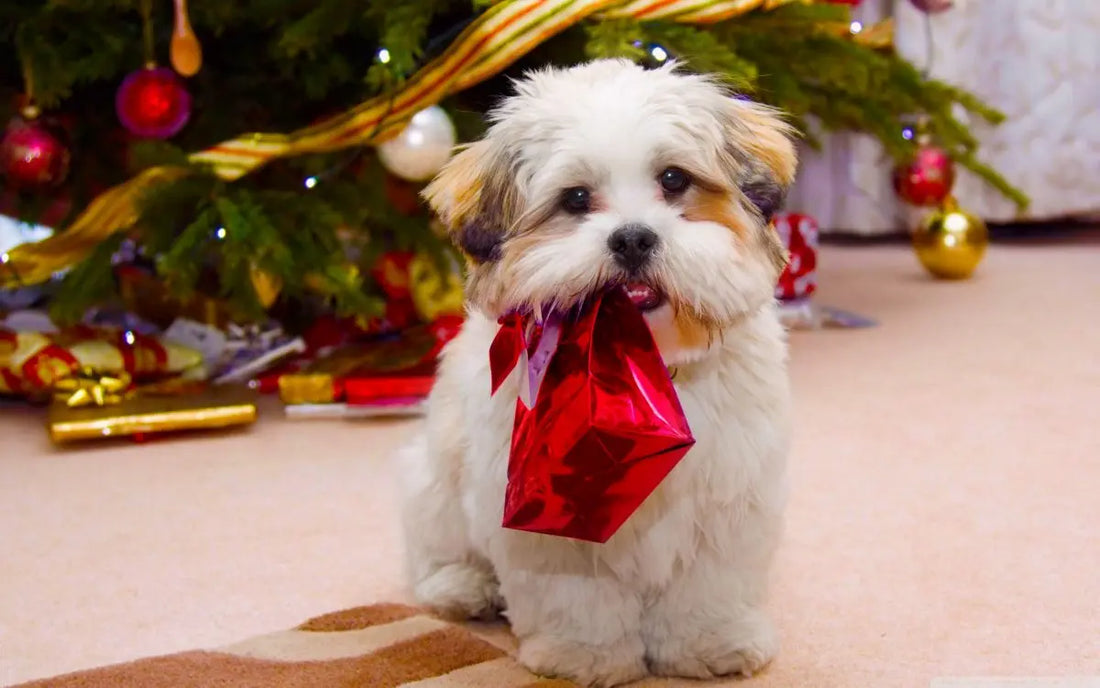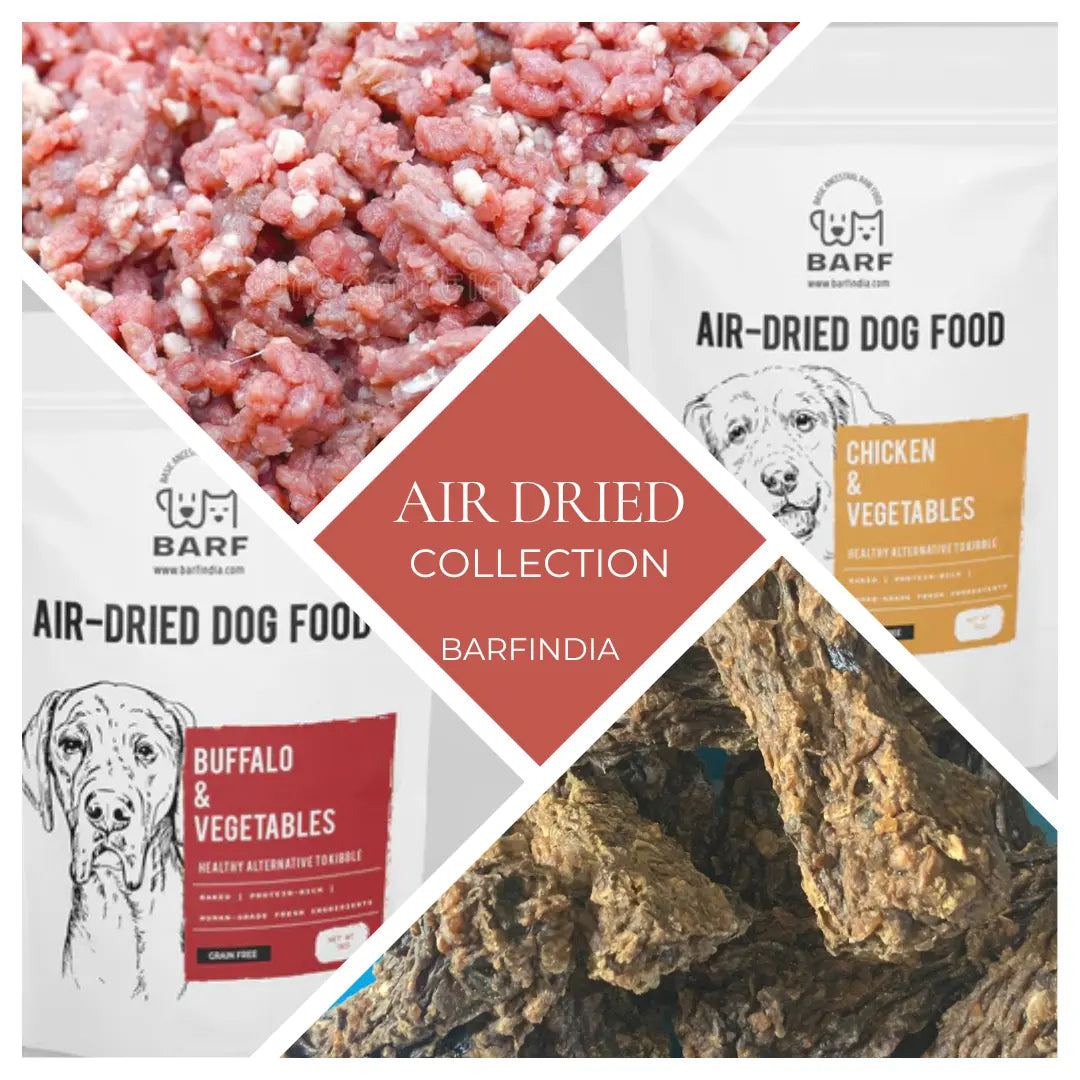
Christmas and Dogs
B.A.R.F. India AdministratorChristmas and Dogs? It’s that time of the year where mistletoe, merry lighting and the quintessential
tree emerges from the loft, to light up your House and bring in some good cheer! Followed by, and ending the festivities with bringing in the New Year and ringing out the old one. The house turns into one festive atmosphere with traditional Christmas wreaths, candy canes, carol singing and nativity scenes, giving rise to that Christmassy feeling in every family member, including your pet! Your pet can sense the festivities and excitement, and even shares it with the red Santa cap, and sometimes the little
attached to its collar! While the traditional bell tinkle and the joyous Carol sounds fill the air and positively keeps your pet active with excitement, recent years have seen a rise in a more modern festivity celebration inclusion – The ‘festive’ fireworks. Bright colorful skies complete the scene post-Midnight mass, with rainbow rockets, and crackers filling the air. While it brings a smile to our kids and fills their eyes with wonder, our little furry ones may not be that upbeat about it. In fact, it may result in filling them with fear, nervousness and panic. Let’s not forget, most animals are more sensitive to sounds and noises than humans, resulting in not a very happy place to be in. If your pet is truly a part of your family, it is vital to make him a part of your celebration and ensure he enjoys the festivities too.
Here are some tips to fill your dogs with some merry cheer instead!
-
Creating a pet happy space
: Some pets are more sensitive and susceptible to noise than others. If you’re pet whines, shakes, trembles or paces during a lightning and thunder bout, or when there’s a sudden vessel drop, or some lousy horn in the neighborhood, you can be sure, that your pet would not take to festive fireworks. Help your pet find its happy place – under the bed, in a crate, or even shutting the windows and moving its bed to a place where the least decibel of outside sound reaches it. Playing some soft re assuring music instead might help. Remember loud noises can make your pet bolt, and might lead to an injury due to its sudden nature. -
Be foresighted and finish your pet walk early:
If you have an idea about the approximate time the fireworks would start, take your pet out for a walk early, and let it finish its ‘toiletries’ before the noise begins. The last thing you need is a scared dog close to the commotion! -
Acclimatizing your pet to loud noises:
Another positive way is to start a month or so early, and try to get your pet familiar with loud noises. Playing an audio file of sounds that your dog fears, fireworks or clanging, at a comfortable volume, and rewarding his calmness with a special treat, can be a great way of de-sensitizing your dog to loud sounds. Keep increasing the volume over a regular period of time very slowly and rewarding the dog with a treat, can go a long way in making your pet comfortable on those loud festive dates during the year. Lower the volume at any time you find your pet’s anxiety levels rising along the course of the exercise. -
A pet swaddle might help greatly:
Just like the benefits of a baby swaddle, a pet too can gain from swaddling it with a warm soft towel or sweater and even just holding it close and assuring it with comfort words. -
Happy association therapy:
Another way of calming and comforting your pet is to let it have its favorite toy, or pet friendly chewy nearby. This works just like how it works for kids and babies in soothing them. -
In an extreme case, medication with proper expert advice may help:
While it’s not advisable, sometimes in an extreme situation, where noises makes your pet get acutely hassled, resulting in trauma, it may require some form of medication. This may provide a short term relief and should be taken with a vet’s consultation. However, it must be noted that it can work as a very temporary ad hoc measure and it has to be supported by other remedial options. -
Most importantly, a pet parent has to first be calm:
A pet, especially dogs, can sense anxiety and nervousness in humans. If you are a family member, your anxiety levels will affect your pet too, resulting in heightened fear in your pet. If you are calm and relaxed - your pet will be too. As it will always look to you for re assurance.
Remember to make it fun for your pet this festive month, and an occasional relaxing of rules for it will bring some good cheer to him or her too! Involve your pet in the house decorating process by allowing it to play a little with the buntings, and maybe even get some customized
or little vests for it. Include a
under the tree for your pet! This Christmas its a good idea to bring your pet to a
too. Santa too had his healthy pet reindeers!



